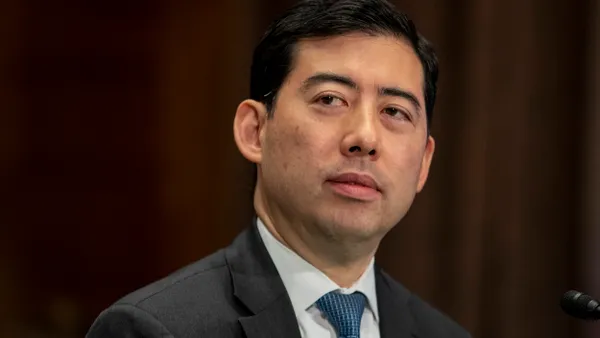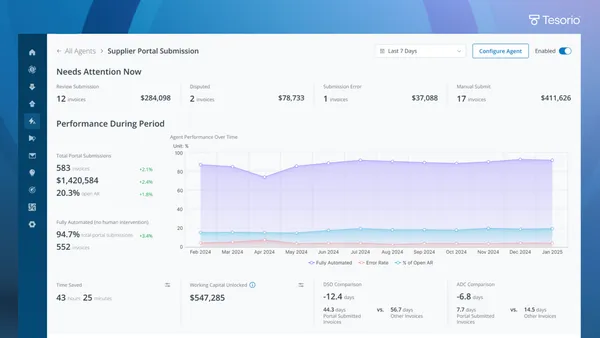Dive Brief:
- Google parent Alphabet announced Wednesday that Eli Lilly veteran Anat Ashkenazi will become CFO of the technology giant, effective July 31.
- Ashkenazi succeeds Ruth Porat, who announced last year that she was stepping down from Alphabet’s top finance post and transitioning into a newly created dual role of president and chief investment officer at the company.
- Porat took Alphabet’s finance reins in May 2015, making her the company’s longest-serving CFO. She will continue serving in the role until Ashkenazi’s start date, the company said in a press release.
Dive Insight:
The incoming finance chief faces several challenges, including adapting to the fast-paced and innovation-driven world of Silicon Valley, aligning financial strategies with technological advancements, and managing regulatory scrutiny and market expectations, Shawn Cole, president at the executive search firm Cowen Partners, told CFO Dive.
“It is unusual to recruit a lifelong Eli Lilly executive for such a significant role in a technology giant like Alphabet,” Cole said in an email. “The industries are vastly different in their operations, culture, and strategic priorities.”
Companies like Alphabet have few peers from which to draw qualified executive candidates, which can make it more challenging for them to avoid turning to industry outsiders when filling vacancies, absent robust internal succession planning, he added.
Still, CFO skills are often transferable, and Ashkenazi will have the benefit of coming into one of the most innovative companies in the world and inheriting a strong financial situation, said Jack McCullough, founder and president of the CFO Leadership Council.
“While switching industries always comes with a learning curve, she will master it quickly,” he said via email.
Louis Navellier, founder and CEO of Navellier & Associates, a privately-held investment management firm, said he’s closely watching to see whether Google, with Ashkenazi at the finance helm, will continue its long-standing policy of not providing earnings guidance to investors.
“I, for one, hope that Anat Ashkenazi will make Google more transparent and Wall Street friendly,” he said.
Ashkenazi, 51, is preparing for her career move after spending more than two decades at Eli Lilly in a variety of finance and operations roles, according to an Alphabet securities filing.
Prior to her current role at Eli Lilly, she was controller and finance chief of the Lilly Research Laboratories unit. She also previously held roles as the CFO for a number of global divisions within Eli Lilly, including Oncology, Diabetes, Global Manufacturing & Quality, and Research & Development.
Ashkenazi will continue to serve at “full capacity” in her current role through July, according to a Wednesday press release from Eli Lilly. An internal and external search for her successor is “actively underway,” the company said.
Alphabet’s finance leadership transition comes at a critical time for the company, when it’s locked in a race with other tech giants, including Microsoft and Amazon, for dominance in the arena of artificial intelligence.
“We’re very pleased to have found such a strong CFO, with a track record of strategic focus on long-term investment to fuel innovation and growth,” Alphabet CEO Sundar Pichai said in the company’s Wednesday release. “The AI era is giving us an incredible opportunity to innovate at scale across our core products, and to create entirely new products and experiences for our users and customers.”
The company generated $80.5 billion in the first quarter, up 15% year-over-year, according to results released in April. Its total cloud segment revenues in particular reached $9.6 billion, a 28% spike compared with the year-earlier period.
“The growth we are seeing across cloud is underpinned by the benefit AI provides for our customers,” Porat said during an April earnings call. “We continue to invest aggressively while remaining focused on profitable growth.”
Editor’s note: This story has been updated to include reactions to Alphabet’s announcement. Maura Webber Sadovi and Grace Noto contributed to this report.













